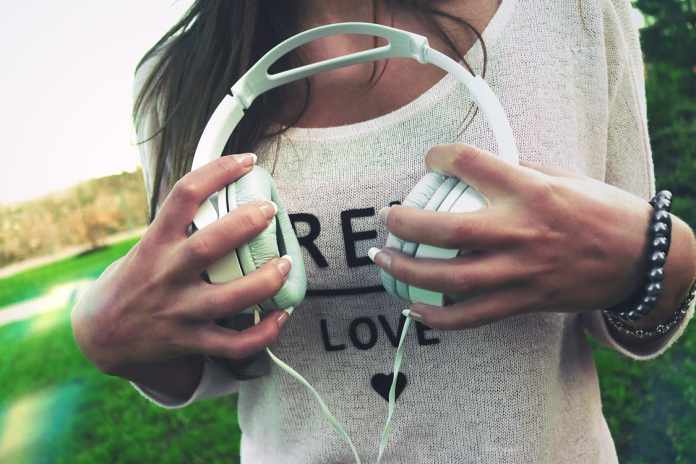Did you know that among the most common conditions among seniors is hearing loss? In fact, up to 30 million adults over the age of 60 are predicted to have some type of hearing loss. Approximately 2 million people in this group have severe to profound hearing loss, a type of impairment that makes it challenging to engage in daily activities like having a conversation or listening to the radio.
Fortunately, there are hearing aids specifically designed for treating severe or profound hearing problems. Let’s take a glance at a few of the best choices in this details breakdown.
Please note that buying hearing aids for severe hearing loss must only be done after consulting with your audiologist. They are best suited to walk you through the process and help you discover the device that will support your needs the best.
What is Severe or Profound Hearing Loss?
In general, a hearing disorder is characterized by the softest level of sounds you can hear, which is evaluated in decibels and is identified as your hearing threshold (dB). These limits are used to classify your hearing loss as mild, moderate, severe, or profound.
Severe hearing loss is typically described as threshold values of sound waves of 71-95dB, while a profound hearing loss is defined as threshold levels greater than 95dB.
If you have profound hearing loss, you won’t be able to hear most of the daily sounds without modulation; only loud sounds will be audible for you. Let’s say, if your car window is open, you might be able to hear a 100-decibel emergency siren, but not someone’s voice calling you from behind.
In other words, individuals with profound hearing loss are unable to hear sounds and noises that are typically quieter than 90 decibels. Normal discussion is usually around 60 decibels.
Hearing Aids and Profound Hearing Loss
Hearing aids for anyone with severe hearing loss can greatly boost their degree of independence, which is essential for seniors living alone, because they can hear the noise of a fire alarm, intruders, or even a carbon monoxide alarm, making it safer for elderly in their home.
People with severe hearing loss can also advantage from modern hearing aid technology, which allows them to transition from one feature of hearing aids to the next while still detecting noises from multiple places and participating in discussions even in noisy environments.
This helps give users more freedom and, with Bluetooth technology from a broad variety of devices, the option to stream audio without having to remove their hearing aids and even more features that we will discuss more in detail later.
Causes of Severe Hearing Loss
Hearing loss can be caused in most individuals by a mixture of exposure to noise, genetic factors, and age. Normally, this is why it is much more prevalent in older adults; nevertheless, there are a number of additional factors which contribute to hearing problems:
- Noise Exposure: While aging normally causes wear and tear on the neurons from within our ears, loud noises can hasten this procedure. Individuals who have been exposed to loud noises for an extended period of time, such as manufacturers and construction workers, are more likely to develop hearing loss. As a result, it’s always a good reason to stop loud noises or to wear earplugs if they can’t be avoided.
- Ear Infection History: Any history of recurring expansion, diseases, infection, or eardrum ruptures can result in permanent hearing loss.
When these delicate components of your ear become permanently damaged, there is no way of fixing them, so it is critical to take care of your ears. That being said, a good hearing aid could go a long way toward trying to restore one’s hearing ability, particularly for those who have drastic to profound hearing loss.
Advanced Hearing Aid Technology
Each significant hearing aid manufacturer produces numerous levels of modern advanced digital technology additional to basic hearing aid technology. Hearing devices have become much more automatic and prepared with more characteristics as technology advances, allowing people to communicate more effectively in tough situations.
A hearing aid with sophisticated technology, for instance, may very well have eight or more streams to detach sound waves for encoding rather than two. This divides the sound wave into even smaller frequencies, leading to higher signal processing resolution.
Choosing a Hearing Aid Best for Your Situation
It’s no surprise that every customer’s hearing profile is unique, as are their requirements. A consultation with a qualified audiologist is a great first step in determining how advanced your hearing aid should be. After which, taking a look at your everyday surroundings and activities can help to make your final choice.
Are you frequently outside and require hearing aids for distance or to determine where a sound comes from? Or, are you often in a communal setting, such as a care facility, in which you might need to be capable of distinguishing sounds in noisy or crowded surroundings?
When making your final choice also make sure to keep in mind the following aspects for hearing aids:
- Sound Quality: It should go without even saying that a hearing aid must generate audible and concise sounds. Various hearing aids produce different sounds, and some of what tends to make them operate for you is a personal preference.
- Adjustable Settings: Although almost any hearing aid can operate well in a silent place only with one person speaking, picking up speech in a noisy environment is a completely different task. Keeping this in mind, take a glance for hearing aids with positional microphones and noise cancellation capabilities that allow you to concentrate on the sounds you would like to hear while being able to tune out the ones you don’t.
- Accessory: Individuals with serious to profound hearing loss frequently require extra communication aids. The accessibility and connectivity of accessories can have a significant impact on one’s quality of life in this scenario.
Your Hearing Aid Best Options
“Power hearing aids” or “superpower hearing aids” are hearing aids for people who have significant or severe hearing loss. They are available from all of the main hearing aid producers for both children and adults. Because they comprise of more circuit elements, these aids are typically bigger than others.
Some of the best brands when choosing a hearing aid in the industry include the following:
- Oticon
- Signia
- Starkey
- Widex
Concluding Thoughts
A hearing aid is among the most important ways for anyone with extreme to profound hearing loss to keep living life to its fullest. When shopping for a hearing aid, consider your possible options because high-powered tools like the ones mentioned in this article are not cheap. Fortunately, most sellers will provide a trial version, making sure that you will be able to determine the perfect hearing aid for your necessities.















